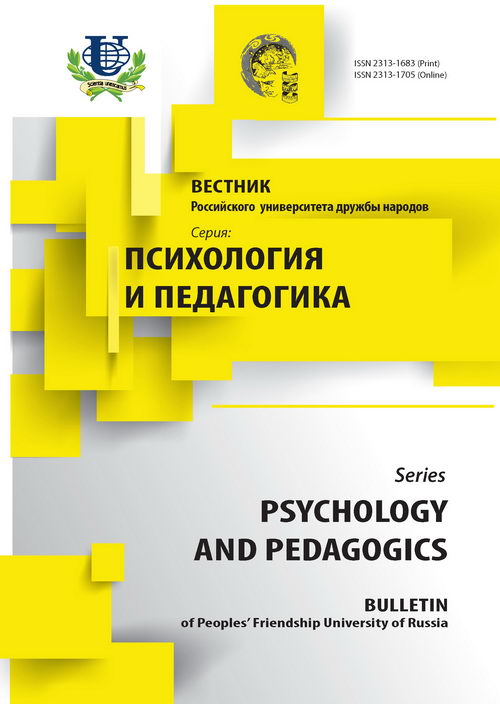SHAPING ADOLESCENTS’ INFORMATION AND COMMUNICATION NEEDS BY MASS MEDIA AS AN INSTITUTION OF SOCIALIZATION
- Authors: Arendachuk IV1
-
Affiliations:
- National Research Saratov State University
- Issue: No 1 (2016)
- Pages: 87-95
- Section: Articles
- URL: https://journals.rudn.ru/psychology-pedagogics/article/view/13414
Cite item
Full Text
Abstract
The paper deals with the influence of modern mass media on the process of a person’s socialization and demonstrates their role in shaping information and communication needs of adolescents. The literature analysis helped to identify that a person’s information and communication needs are manifested in the form of a demand for the form of communication messages proposed by the society and are associated with the information support of the person’s vital substructures (experience, knowledge; focus, interests; forms of communication). The paper presents the results of an empirical study conducted on a sample of adolescents aged 13-15 ( n = 85). It was conducted using a questionnaire focusing on the features of their information and communication needs, and the following techniques: the Psychological Mindedness Scale (H.R. Conte, adapted by M.A. Novikova and T.V. Kornilova), the World Assumptions Scale (R. Janoff-Bulman, adapted by O. Kravtsova), and the Technique of studying the structure of personal maturity (R.M. Shamionov). An analysis of mass media consumption by adolescents showed that the main sources of information for them are television and the Internet. The study demonstrated that girls also read magazines and newspapers and prefer informative materials about fashion and style. They aim at satisfying their educational needs 2.3 times more than boys, whereas boys aim at satisfying needs associated with information on sports and entertainment. In terms of personality traits that determine the effectiveness of socialization, girls differ from boys in that they have a more marked psychological rationality and benevolence towards the world in their personal structure of world assumptions.
About the authors
I V Arendachuk
National Research Saratov State UniversityDepartment of Social Psychology of Education and Development
References















